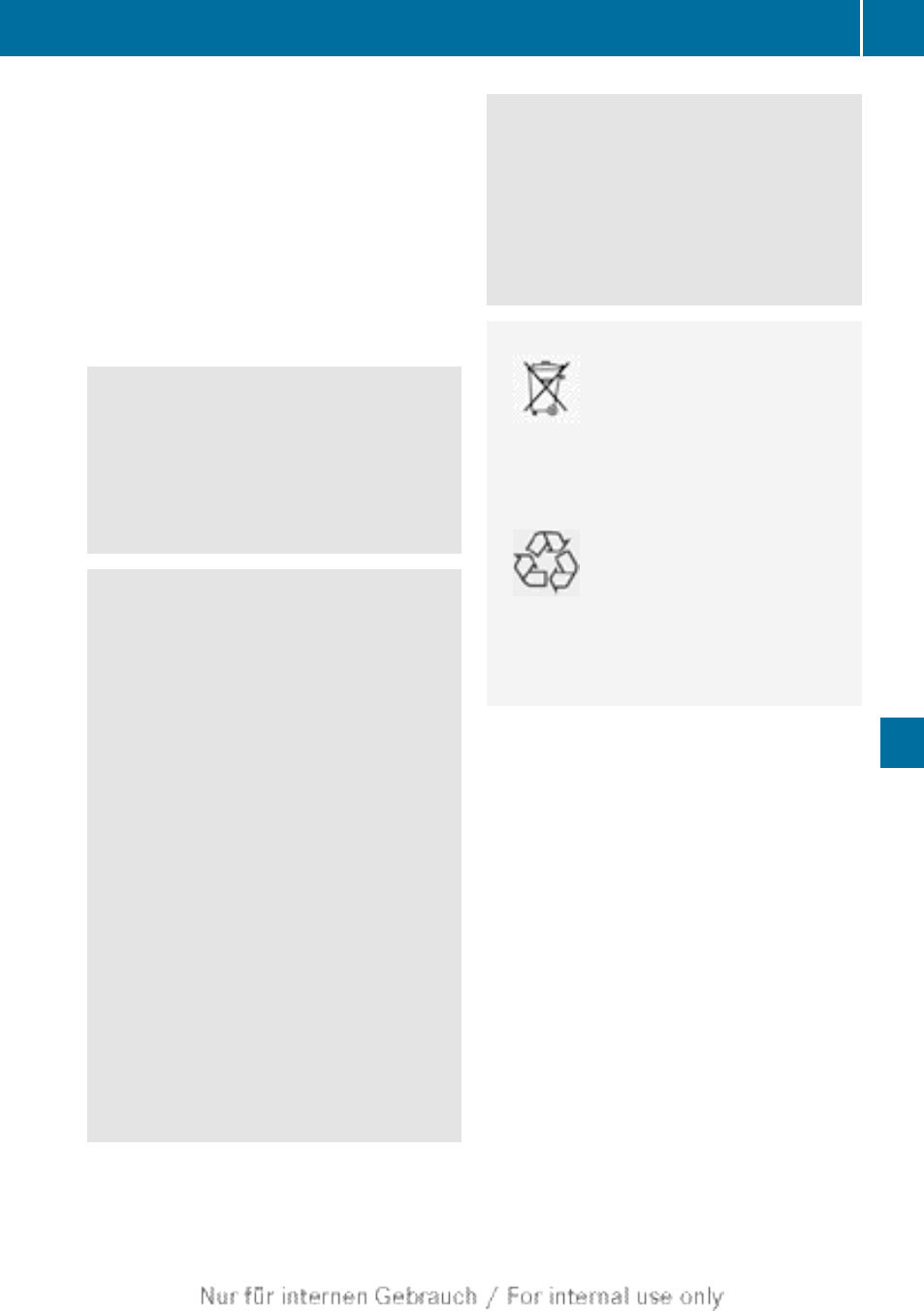Breakdown assistance, Battery (vehicle) – Mercedes-Benz 2013 C Class Sedan User Manual
Page 301

Always make sure that neither you nor the
battery is electrostatically charged. A build-
up of electrostatic charge can be caused, for
example:
R
by wearing clothing made from synthetic
fibers
R
due to friction between clothing and seats
R
if you push or pull the battery across the
carpet or other synthetic materials
R
if you wipe the battery with a cloth
G
WARNING
Battery acid is caustic. There is a risk of injury.
Avoid contact with the skin, eyes or clothing.
Do not inhale any battery gases. Do not lean
over the battery. Keep children away from
batteries. Wash battery acid immediately with
water and seek medical attention.
G
WARNING
During the charging process, a battery
produces hydrogen gas. If a short circuit
occurs or sparks are created, the hydrogen
gas can ignite. There is a risk of an explosion.
R
Make sure that the positive terminal of a
connected battery does not come into
contact with vehicle parts.
R
Never place metal objects or tools on a
battery.
R
It is important that you observe the
described order of the battery terminals
when connecting and disconnecting a
battery.
R
When jump-starting, make sure that the
battery poles with identical polarity are
connected.
R
It is particularly important to observe the
described order when connecting and
disconnecting the jumper cables.
R
Never connect or disconnect the battery
terminals while the engine is running.
G
WARNING
During charging and jump-starting, explosive
gases can escape from the battery. There is a
risk of an explosion.
Particularly avoid fire, open flames, creating
sparks and smoking. Ensure there is sufficient
ventilation while charging and jump-starting.
Do not lean over a battery.
H
Environmental note
Batteries contain dangerous
substances. It is against the
law to dispose of them with
the household rubbish. They
must be collected separately
and recycled to protect the
environment.
Dispose of batteries in an
environmentally friendly
manner. Take discharged
batteries to a qualified
specialist workshop or a
special collection point for
used batteries.
!
Have the battery checked regularly at a
qualified specialist workshop.
Observe the service intervals in the
Maintenance Booklet or contact a qualified
specialist workshop for more information.
!
You should have all work involving the
battery carried out at a qualified specialist
workshop. In the exceptional case that it is
necessary for you to disconnect the battery
yourself, make sure that:
R
you switch off the engine and remove the
SmartKey. On vehicles with KEYLESS-
GO, ensure that the ignition is switched
off. Check that all the indicator lamps in
the instrument cluster are off. Otherwise,
electronic components, such as the
alternator, may be damaged.
R
you first remove the negative terminal
clamp and then the positive terminal
clamp. Never swap the terminal clamps.
Battery (vehicle)
299
Breakdown assistance
Z